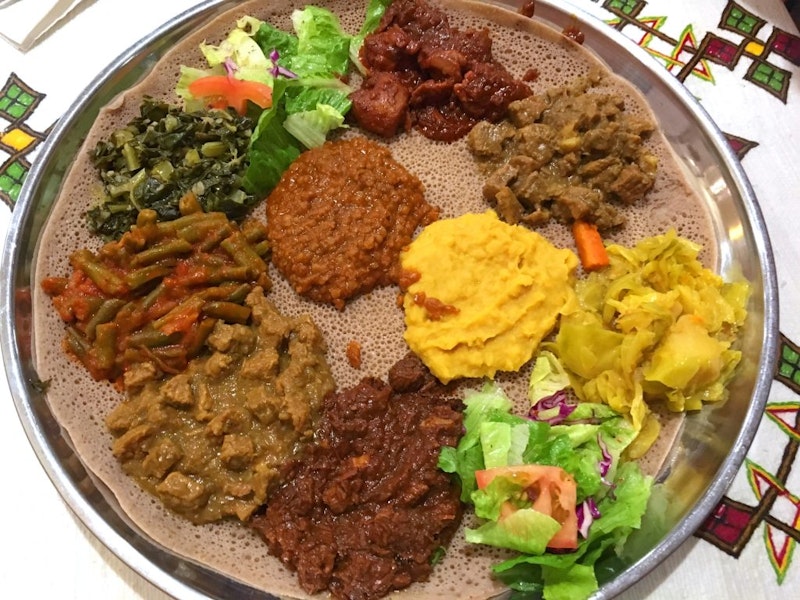We’d taken to the front steps out of protest, objecting as we did to the Ethiopian courses presented to us at the Ethiopian restaurant our parents had chosen for that Sunday evening meal in, I suppose, summer 1972 in the Berkshires, some hippy-touristy spot stranded between Boston and New York. An Ethiopian restaurant, for Christ’s sake. I think our parents were looking for something they could talk about.
When I think sad thoughts, I’ve got a lifetime’s supply. For instance, this moment. An Ethiopian chef is having his work turned down by a crew of middle-class American child snots. I’m one of the snots, and the bunch of us have removed ourselves to the strip of cement that is the Ethiopian restaurant’s front walk. Looking back, I respect the combo approach taken by this moment. It lays out for me all bad things I want to see. At the back of the combo, providing the thing to which all sticks, we have the simple fact of insult to a man doing his job, and a foreigner at that, someone looking for a place in a far land. Stuck to this we have some burry clumps of bad news, chief among them the fact that I’d followed along with the crowd. I just did as they did, and none of them liked me.
For beginners, they were from Boston and around there; my family was from outside New York. I suppose their parents were friends with the couple my family was visiting, the couple being my parents’ grad school buddies from the old days. I’d been landed among them while the adults talked, and I was fat and weighed down by the era’s long hair, which in my case was unwashed and resembled a thicket of felt. My further deficits I can only guess, but they were there. I’ve learned enough times since that I can’t hold a conversation and don’t find topics other people want to hear about. On this particular occasion, I can recall no trouble from others. But I don’t remember anyone being nice to me or wanting me to be there. Wait, there’s the backdrop to all: I was getting a trial run in the feel my life has given me over and over. This is the moment’s essential dismalness, the one to which all other elements are secondary. The chef finishes behind me. I suppose, really, we’re a shot and chaser sequence, with this twist: I didn’t realize that the shot was there. I started out thinking about the chef’s pain, then saw my own. But, properly speaking, I come first. Life had dealt me that miserable hand, and on top of that I was hurting someone just by being me.
—Follow C.T. May on Twitter: @CTMay3

